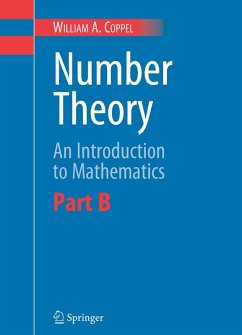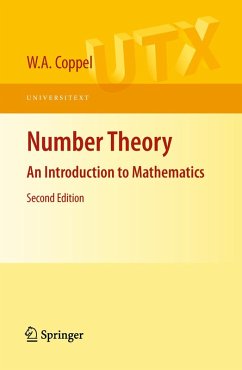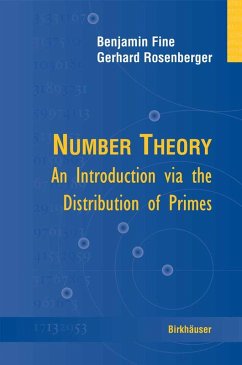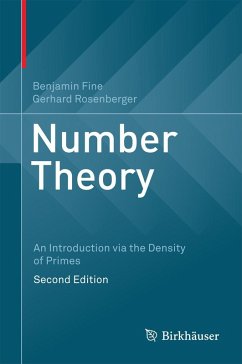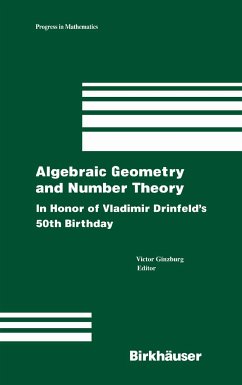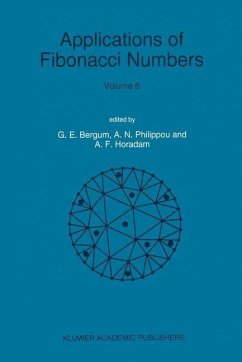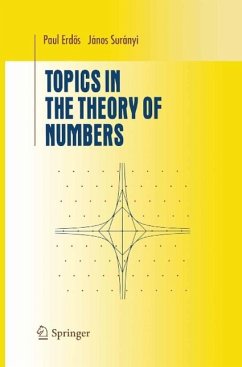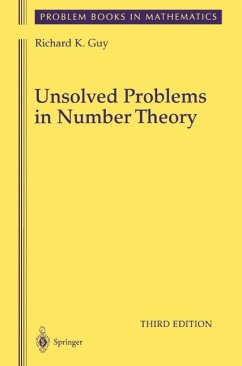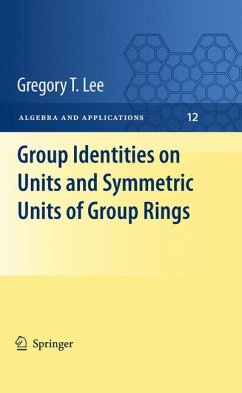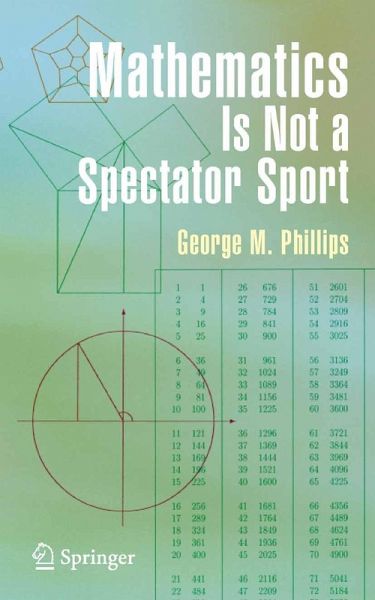
Mathematics Is Not a Spectator Sport (eBook, PDF)
Versandkostenfrei!
Sofort per Download lieferbar
40,95 €
inkl. MwSt.
Weitere Ausgaben:

PAYBACK Punkte
20 °P sammeln!
Mathematics Is Not a Spectator Sport challenges the reader to become an active mathematician. Beginning at a gentle pace, the author encourages the reader to get involved, with discussions of an exciting variety of topics, each placed in its historical context, including: * The surprising achievements of early Babylonian mathematics; * The fascinating arithmetic of continued fractions; * Geometric origins of the Euclidean algorithm; * Infinite sets and the pioneering work of Georg Cantor; * The sieve of Eratosthenes, which is used for finding primes; * Gauss's conjecture about the density of p...
Mathematics Is Not a Spectator Sport challenges the reader to become an active mathematician. Beginning at a gentle pace, the author encourages the reader to get involved, with discussions of an exciting variety of topics, each placed in its historical context, including:
* The surprising achievements of early Babylonian mathematics; * The fascinating arithmetic of continued fractions; * Geometric origins of the Euclidean algorithm; * Infinite sets and the pioneering work of Georg Cantor; * The sieve of Eratosthenes, which is used for finding primes; * Gauss's conjecture about the density of primes; * Special methods for finding really large primes, and a discussion of the famous Riemann hypothesis; * A combinatorial interpretation of the Fibonacci numbers; * A study of properties of the triangle, including one named after Napoleon; * The application of algebraic methods to solve geometrical problems; * The study of symmetries using algebraic methods; * The foundations of group theory; * An algebraic interpretation of the Platonic solids. The chapters are largely self-contained and each topic can be understood independently. However, the author draws many connections between the various topics to demonstrate their interplay and role within the context of mathematics as a whole. Lots of carefully chosen problems are included at the end of each section to stimulate the reader's development as a mathematician.
This book is intended for those beginning their study of mathematics at the university level, as well as the general reader who would like to learn more about what it means to "do" mathematics.
* The surprising achievements of early Babylonian mathematics; * The fascinating arithmetic of continued fractions; * Geometric origins of the Euclidean algorithm; * Infinite sets and the pioneering work of Georg Cantor; * The sieve of Eratosthenes, which is used for finding primes; * Gauss's conjecture about the density of primes; * Special methods for finding really large primes, and a discussion of the famous Riemann hypothesis; * A combinatorial interpretation of the Fibonacci numbers; * A study of properties of the triangle, including one named after Napoleon; * The application of algebraic methods to solve geometrical problems; * The study of symmetries using algebraic methods; * The foundations of group theory; * An algebraic interpretation of the Platonic solids. The chapters are largely self-contained and each topic can be understood independently. However, the author draws many connections between the various topics to demonstrate their interplay and role within the context of mathematics as a whole. Lots of carefully chosen problems are included at the end of each section to stimulate the reader's development as a mathematician.
This book is intended for those beginning their study of mathematics at the university level, as well as the general reader who would like to learn more about what it means to "do" mathematics.
Dieser Download kann aus rechtlichen Gründen nur mit Rechnungsadresse in A, B, BG, CY, CZ, D, DK, EW, E, FIN, F, GR, HR, H, IRL, I, LT, L, LR, M, NL, PL, P, R, S, SLO, SK ausgeliefert werden.




